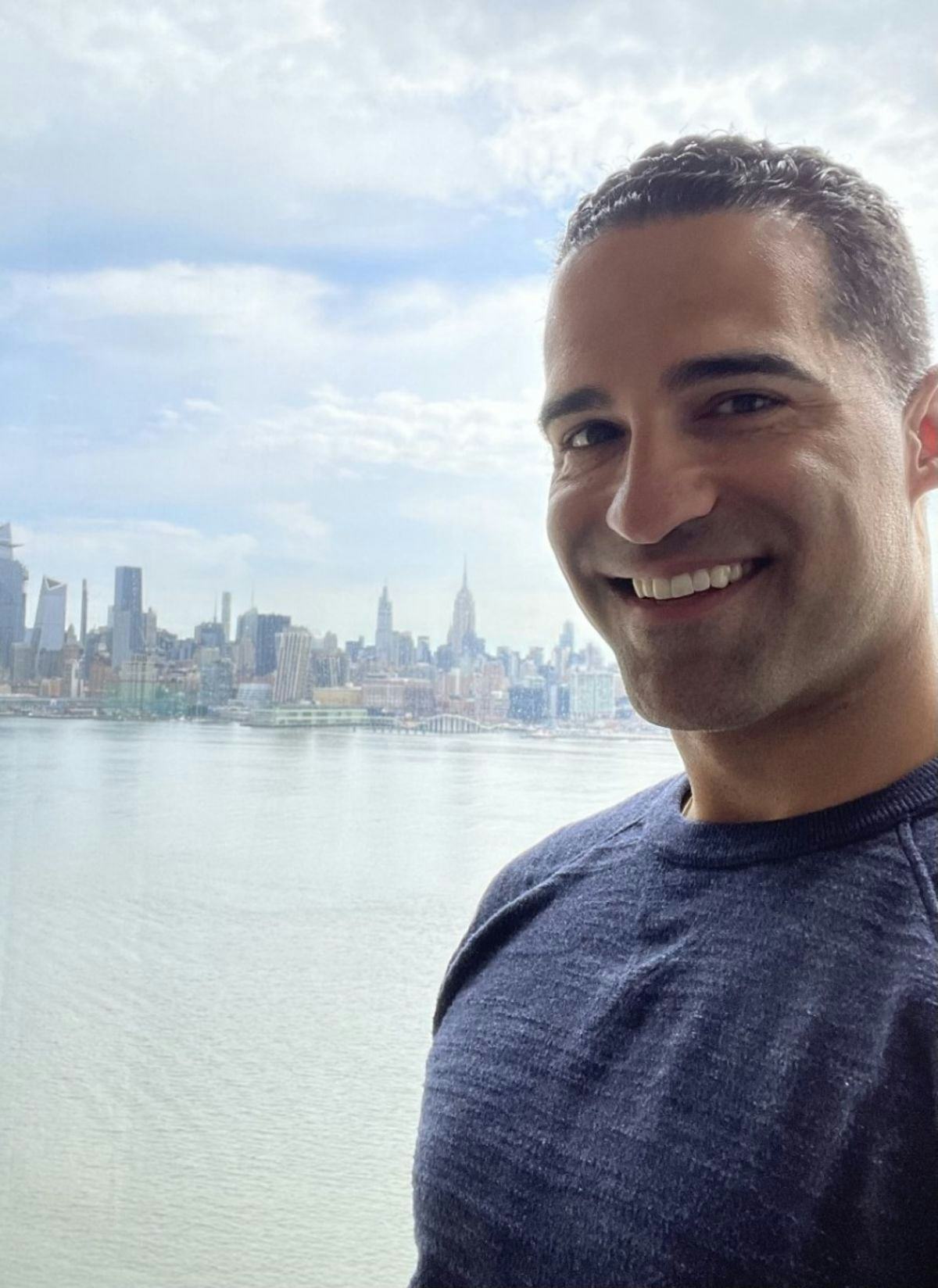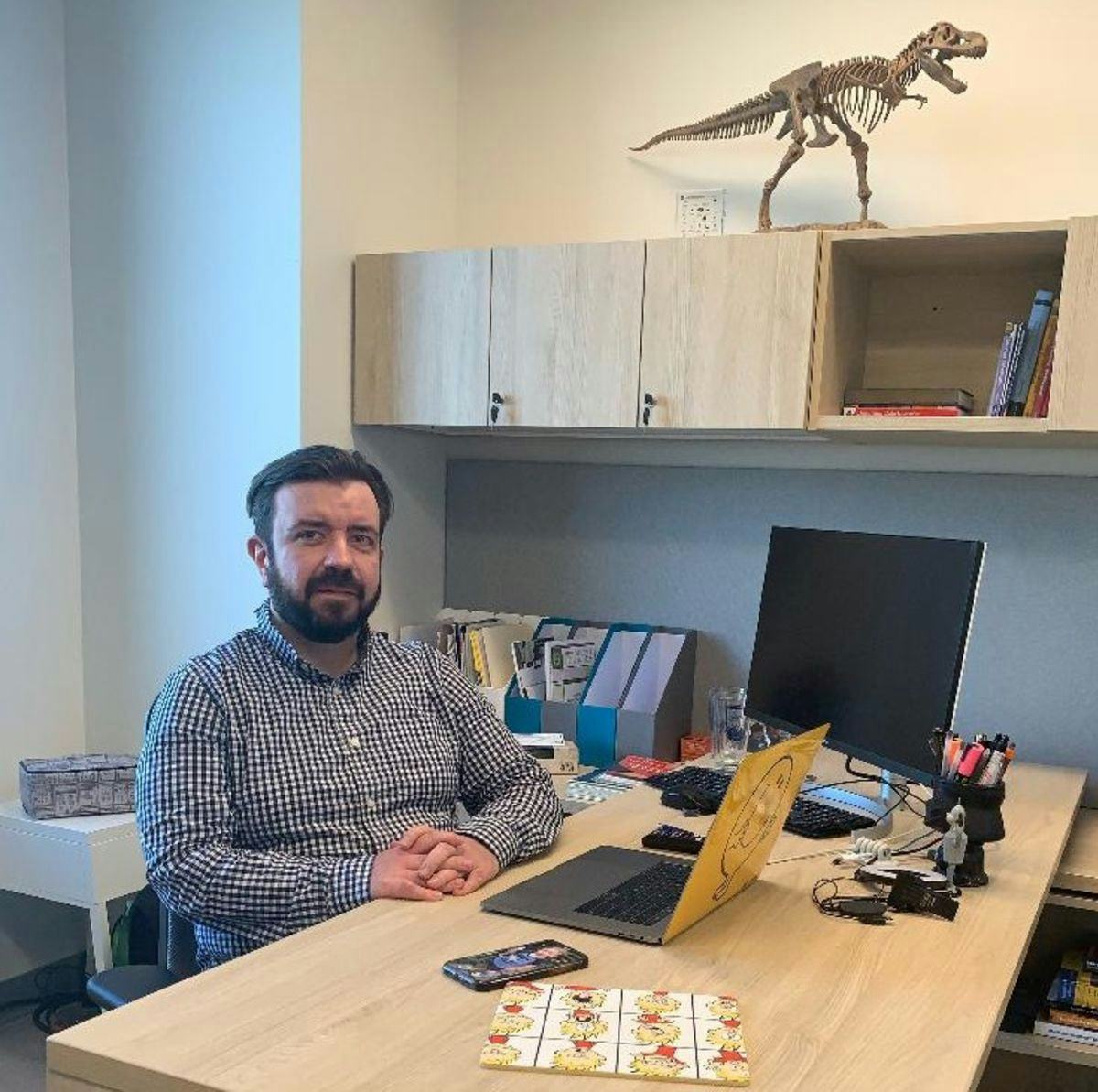Physics Alumni Carve Dynamic Careers in Life Sciences Research and Consulting
Empowered by their studies at Stevens Institute of Technology, Frank Corvino and Marko Zivkovic are helping solve some of today’s biggest health challenges
Hundreds of physics students at the undergraduate, graduate, and doctorate levels test their hypotheses—and themselves—at the Stevens Institute of Technology’s Charles V. Schaefer, Jr. School of Engineering and Science, in person or virtually, every year.
But once they have their diploma, where do Stevens physics graduates go?
For alumni Frank Corvino M.S. '07 Ph.D. '10 and Marko Zivkovic M.S. '09 Ph.D. '11, the answer was easy—back to the beginning, or, more specifically, to Genesis Research, the Hoboken, N.J.-based life sciences research and consulting company that Corvino co-founded and recruited his friend Zivkovic to join. Although they started their journeys on different continents, their paths were similarly influenced by inspiring educators with ties to Stevens.
“It’s a problem-solving degree”
For Corvino, the attraction of physics wasn’t specifically the study of matter and energy. Rather, it was the opportunity to challenge himself.
“As an undergraduate at Fordham University, I was looking for something that I could be passionate about,” he recalled. “I took a physics class taught by Jay Mancini, who is a Stevens alum, and I fell in love with how hard physics is! At any moment, there’s a high probability of failing, of not being able to solve something, of never being able to figure something out. I thought, if I can get through this, I can get through anything!”
Upon graduation, Corvino followed Mancini’s encouragement to continue his physics studies at Stevens, where he did more than “get through.”
“The graduate and doctoral students and faculty, and the whole culture of the department, helped shape me as a person,” he recalled. “Everyone came from such different backgrounds and skill sets, but they were all passionate about physics, and we all learned from one another. Notable faculty that I am very grateful to have had the opportunity to learn from include Rainer Martini, Christopher Search, and Charlie Suffel.”
In addition to informal opportunities to learn and teach, Corvino served as a teaching assistant at Stevens and taught undergraduate classes at the school during the summers in between his own studies. He also served as a visiting professor at the City University of New York for five years.
“Those experiences involved so much more than teaching,” he said. “It’s public speaking, presenting to a large group, and learning how to prepare and execute properly. Those teaching roles prepared and helped me become a better communicator and a better CEO.”
That turned out to be the ideal training for Corvino, whose next stop was to go straight to the top, co-founding Genesis Research.
“When I got my Ph.D., there was a global recession, and finding a job wasn’t easy,” he explained. “I’ve always been fascinated with the healthcare field, and I’ve always wanted to do research that would impact people’s lives. While I was at Stevens, my mom was diagnosed with stage IV lung and brain cancer, but within six months, she was in remission, and that was because of research. I decided I wanted to be involved in the innovation of lifesaving therapies so other families could experience the success we experienced while my mom was fighting cancer.”
Today, Corvino is CEO of Genesis Research, where he and his team contract with biotech and pharmaceutical companies to conduct research supporting the development, approval, and commercialization of drug therapies. Over the past year, that work has included intensive and extensive studies related to the accelerated U.S. Food and Drug approval of COVID-19 vaccines.
Genesis also maintains several affiliations with Stevens. It’s part of the Stevens Alliance for Innovation and Leadership, or SAIL, where team members participate in tech-driven thought leadership discussions. It recruits new hires from Stevens alumni. It tapped business professor Emily Liu to help leverage artificial intelligence to accelerate review of life sciences literature. And whatever the hurdle, Corvino credits his Stevens experience for helping him clear it and keep going.
“That degree was much more than a physics degree, both intellectually and emotionally,” he said. “It was a problem-solving degree. It was a dealing-with-hardships degree. It prepared me to get into anything I wanted and to be successful. It taught me how to think on my feet, knowing that if an answer isn’t jumping out at you right now, it still exists, and you just have to be creative and uncover it. It helped lay the foundation for everything we’ve started and achieved at Genesis.”
“Opportunities above and beyond what I expected”
Marko Zivkovic knew from an early age that he was interested in electrical engineering, but it took another Stevens professor to bring him across the Atlantic Ocean from Serbia to Hoboken.
“My father is an electrical engineer, and he introduced me to the problems and challenges that electrical engineers have historically tackled,” Zivkovic said. “I still remember how intriguing it was hearing how in ancient Greece rubbing amber and wool was used to produce a charge—something that I could also try for myself!—and following that story of electricity all the way to large power plants that my father was involved in designing.”
Zivkovic applied and was accepted to study electrical engineering at the University of Belgrade, one of Serbia’s most prestigious schools, where he explored his diverse interests in everything from holograms, photonic crystals, and light to quantum dots and lidars. During his last year as an undergraduate, he met Stevens associate physics professor Christopher Search at a conference, and his next step became crystal-clear.
“I had never heard of Stevens,” Zivkovic recalled. “Professor Search gave a captivating talk, then presented the vision of his research, and I immediately knew that I wanted to be part of it. Even though I had reservations about my chances, as I was an electrical engineer and not a physicist, I got in, formed a delightful group of friends, learned from amazing professors, and had opportunities above and beyond what I expected.”
One of those unexpected opportunities led him to the just-launched financial engineering graduate certificate program.
“Some of my undergraduate friends had been working for big financial companies, and for years we had discussed technical and mathematical problems they faced,” he said. “Often I would try to translate the modeling and simulation approaches we used in physics, but it was not as straightforward as I expected. I thought that financial engineering would be an interesting option to round out my education. It also gave me a better perspective on what to focus on in my Ph.D. thesis, as it allowed me to look at physics research with a different perspective.”
Zivkovic also appreciated the Stevens community that educated, engaged, and, eventually, employed him.
“I came here as a stranger in a strange land, but my peers gave me a feeling of belonging and continue to provide avenues of support even today,” he said. “Professors shared their perspectives and broad expertise and showed me that there is not a prescribed way of doing research that works for everyone, and idea-generation can be a collective product. Postdocs helped me bridge the ‘impostor syndrome’ of self-doubt, and helped me appreciate leadership skills. I was lucky to teach and work with undergraduate students who are now inspiring me with research of their own and who, through patiently learning from me, provided me with a reflection of my understanding of physics and science, revealing how much more I have to learn.”
One of the memorable people Zivkovic met was Frank Corvino, who was also in Search’s research group and soon became a good friend. In 2010, just before earning his Ph.D., Zuvkovic became one of the first quantitative researchers at Genesis, and today he serves as the organization’s chief technology and innovation officer (CTIO). It’s a multi-faceted role currently focused in large part on developing and integrating machine-learning-enabled solutions, in collaboration with Stevens's SAIL program. And for Zivkovic, every moment brings another reason to feel energized.
“Every morning, I am faced with challenges that drive the need for quick thinking, innovation, consistency in staying on a planned roadmap, and innovation using multiple technical skill sets,” he said. “A client can make a request overnight that needs to be resolved that day. A new methodology may have been published that can help us perform better analyses. Some part of our technological framework may require updating. A project that we have been executing for months may be coming to a successful close. Recently, I have been working on strategic problems that involve management and coordination of larger units over both short- and long-term periods. Being able to develop and flex that kind of mindset has been quite fulfilling. I get to learn new things every day, and all of those known and unknown facets are invigorating and keep me excited to face the workday.”
Part of the reason he feels so confident in tackling whatever comes his way is the thorough education he received during his five years at Stevens.
“Being a Ph.D. student in physics involves having many long days—and nights—working on something without much progress, then bursts of intense activity once a solution is found,” he said. “As students, we developed matrix-organization, where we would split the day into parts—A, B, C, D, and so on—and delegate problems to be tackled in each of these chunks. We’d focus on something in part A, and not worry about anything in part B, C, or D, until that part of the day came along. That same approach turned out to be quite effective at work, where the same combination of unnerving and demanding tasks could easily overwhelm you and sap you of productivity. Every time I am faced with a seemingly daunting task, I remind myself that problems are not as bad as they seem at first, and we are often more equipped than we think.”
And this electrical-engineer-turned-physicist-turned-CTIO reminds others that being properly equipped and surrounding yourself with the right people can lead to abundant rewards.
“Your education doesn’t determine your career,” he advised. “It is not straightforward to predict what you’ll be working on in five or ten years. As long as you continue to learn and pay attention to choosing not just what to work on but also whom to work with, there are multitudes of opportunities out there.”




